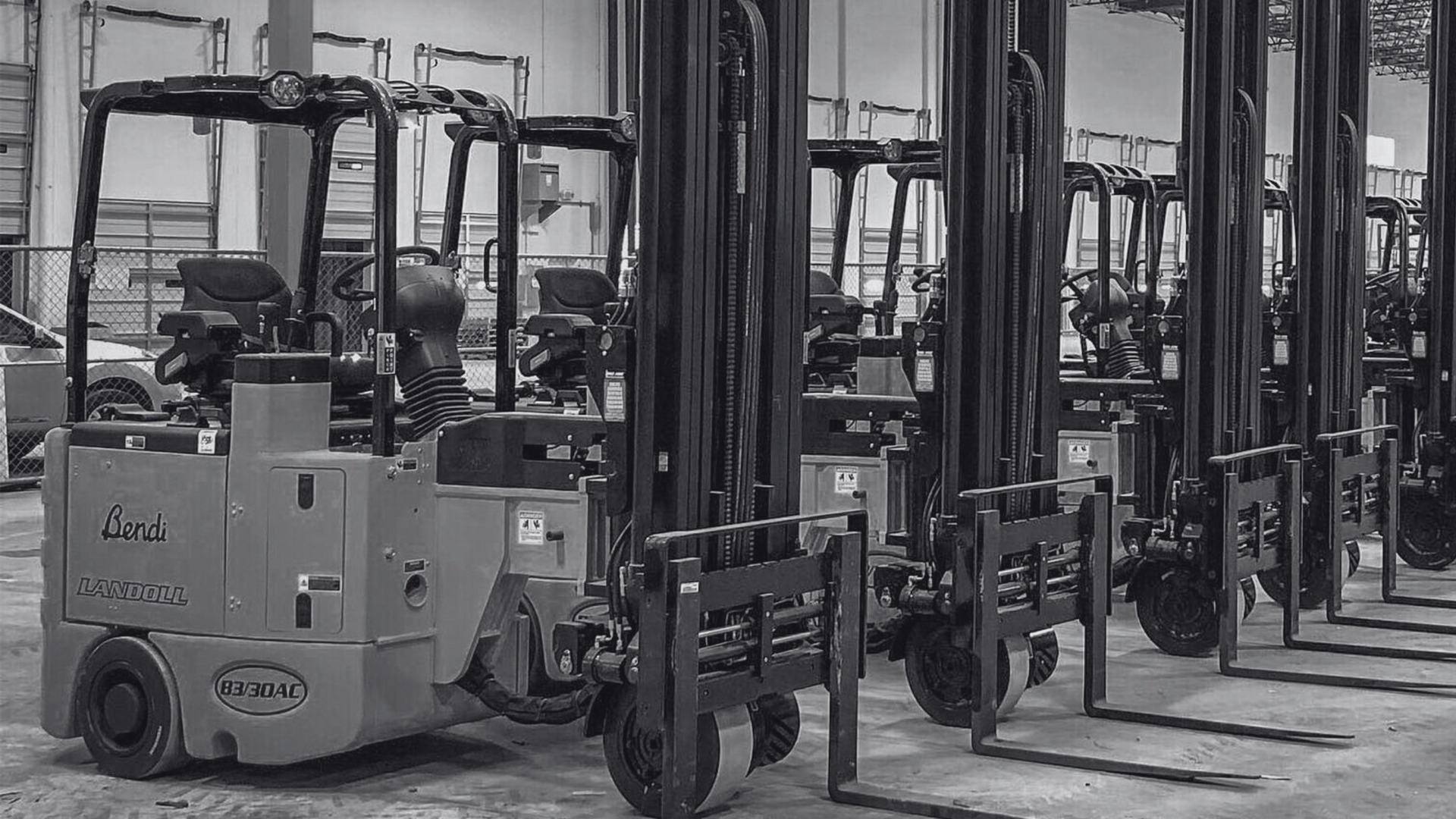Enhancing Efficiency and Safety in Supply Chains
Efficient supply chain management depends on seamless material handling processes. From warehouse operations to final delivery, material handling plays a critical role in ensuring products move efficiently, safely, and cost-effectively. Let’s explore how material handling impacts the supply chain and why investing in the right equipment is essential for success.
Streamlining Warehouse Operations
Material handling equipment like Bobcat forklifts, Bendi narrow aisle forklifts, and Steinbock reach trucks allow warehouses to optimize space, improve inventory flow, and reduce manual labor. Proper storage solutions—such as pallet racks and shelving—help organize products for faster retrieval, leading to quicker order fulfillment and fewer bottlenecks.
Improving Logistics and Distribution
Smooth and efficient movement of goods within a warehouse is crucial for maintaining supply chain flow. Conveyor systems, automated guided vehicles (AGVs), and electric forklifts keep products moving efficiently between storage areas, staging zones, and shipping docks. Utilizing narrow aisle forklifts or order pickers helps maximize space and improves picking efficiency in high-volume warehouses. The right material handling solutions reduce transit times and improve order accuracy.
Enhancing Workplace Safety
In supply chain management, safety is just as important as efficiency. Genie aerial lifts and scissor lifts provide secure access to high shelves and storage areas, reducing the risk of workplace injuries. Advanced safety features on forklifts, such as Bobcat’s Operator Sensing System (OSS) and Guardian Stability System (GSS), further minimize accidents and downtime.
Reducing Operational Costs
Inefficient material handling leads to higher labor costs, product damage, and wasted time. By investing in modern forklifts, warehouse vehicles, and ergonomic lift solutions, businesses can cut expenses while increasing productivity. Choosing the right equipment—whether renting or purchasing—ensures operations run smoothly with minimal disruptions.
Supporting Supply Chain Resilience
A well-structured material handling system enables companies to adapt quickly to supply chain disruptions. Whether it's fluctuating demand, supply shortages, or transportation delays, having flexible storage solutions and efficient handling equipment helps businesses remain agile. Electric forklifts and automated solutions also contribute to sustainability efforts by reducing emissions and energy consumption.
Conclusion
Material handling is the backbone of supply chain management, directly impacting efficiency, cost, and safety. Investing in the right forklifts, aerial lifts, and warehouse solutions ensures a streamlined operation that keeps products moving smoothly from point A to point B. Whether optimizing warehouse layouts or enhancing last-mile delivery, Southeast Handling Systems provides the right solutions to keep your supply chain running at peak performance.
For more information on how we can help improve your material handling operations, contact us at 866-254-1164.




